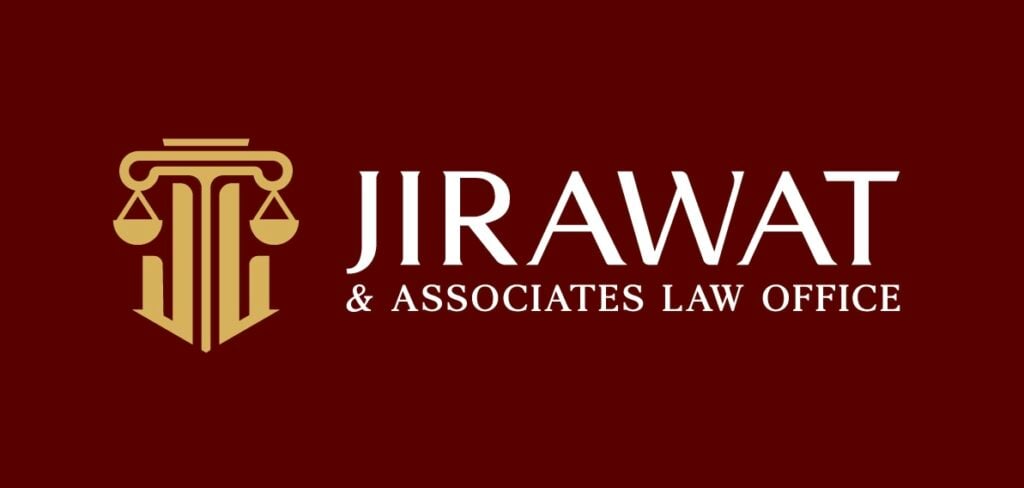

Since 2010, the Global Law Experts annual awards have been celebrating excellence, innovation and performance across the legal communities from around the world.
posted 5 months ago
For foreign investors entering the Thai market, opportunities to partner with the government on infrastructure, energy, and public service projects are immense. However, these ventures are not governed by standard commercial agreements. They fall under a unique legal framework known as administrative contracts in Thailand. Understanding this distinction is not just an academic exercise; it is fundamental to managing risk and ensuring project success.
This guide provides a comprehensive overview for C-level executives, in-house counsel, and project managers on the nature of administrative contracts (“สัญญาทางปกครอง”), their key differences from civil contracts, the special powers granted to the state, and the critical steps for navigating dispute resolution.
An administrative contract is broadly defined as a contract where at least one party is a state agency or a person acting on behalf of the state, and the contract’s purpose is to provide a “public service” or exploit natural resources. This definition is not just a label; it fundamentally changes the rules of the engagement.
Unlike a typical private commercial deal, the primary objective of an administrative contract is not profit, but the fulfillment of a public good. This principle grants the state party certain privileges not found in civil law, creating an unequal bargaining position that investors must anticipate.
The legal framework for administrative contracts in Thailand is primarily rooted in the Act on the Establishment of Administrative Courts and Administrative Court Procedure, B.E. 2542 (1999) (the “ACA”). Section 3 of the ACA defines the jurisdiction of the Administrative Court, which includes disputes concerning:
Other critical laws include:
Confusing an administrative contract with a standard civil contract is a common and costly mistake. The core principles, powers, and remedies are fundamentally different. Here is a breakdown of the key distinctions.
Civil Contracts (Governed by the Civil and Commercial Code)
Administrative Contracts in Thailand (Governed by Administrative Law)
The most significant feature of administrative contracts in Thailand is the state’s ability to exercise certain powers unilaterally. These “exorbitant privileges” stem from the principle that public interest must prevail over private contractual interests.
A state agency can amend the terms of an administrative contract without the private party’s consent if the change is necessary to adapt the public service to new needs or circumstances. For example, a government agency could require a concession holder for a public transport system to increase service frequency. However, this power is not absolute. The modification must be for a genuine public purpose, and the private party is generally entitled to compensation for any increased costs or losses incurred.
The state can terminate an administrative contract unilaterally under two main scenarios:
State agencies typically have the power to impose penalties (e.g., fines) on a private party for delays or breaches of contract without needing a prior court order. These penalties are often specified within the contract itself.
Understanding the practical stages of engaging with the Thai government is crucial for investors.
Most administrative contracts in Thailand begin with a public tender process governed by the Government Procurement and Supplies Management Act. This Act is based on principles of worthiness, transparency, efficiency, and auditability. Foreign investors must pay close attention to the strict formal requirements of the bid documents (Terms of Reference or TOR), as minor procedural errors can lead to disqualification. Any challenges to the bidding process or award decision (a “bid protest”) must be filed with the Administrative Court.
For large-scale infrastructure projects, the Public-Private Partnership (PPP) Act provides a detailed framework. This process is overseen by the State Enterprise Policy Office (SEPO) and involves multiple stages, including a feasibility study, private party selection, negotiation, and contract signing. PPP agreements and concession agreements to operate public utilities or exploit natural resources are classic examples of administrative contracts.
During performance, the state agency maintains an oversight role. Investors must be prepared for rigorous compliance, reporting, and documentation standards. It is during this stage that the state’s unilateral powers of modification or termination might be exercised.
When disputes arise, they are not resolved in the familiar civil courts.
The Thai Administrative Court has exclusive jurisdiction over disputes arising from administrative contracts. Its procedures and legal principles differ from those of the Courts of Justice. The judges are experts in public law, and the court’s primary function is to check the legality of actions by state agencies and protect the rights of private citizens from unlawful state conduct.
This is a critical and complex issue for foreign investors, who often prefer international arbitration for its neutrality and perceived efficiency. The situation in Thailand is nuanced:
If a private party wins a case in the Administrative Court, remedies can include:
Enforcing a monetary judgment against a state agency is generally straightforward, as the Administrative Procedure Act B.E. 2539 (1996) outlines a clear process for the agency to comply with the court’s final order.
Proactive risk management is essential when dealing with administrative contracts in Thailand.
Before signing any contract with a Thai state agency, conduct thorough due diligence:
Your contract should contain clear clauses addressing:
While the legal landscape for administrative contracts in Thailand is complex and weighted in favor of the state, it is stable and navigable. The key to success is not to fight the system, but to understand it. The principles of public service, the state’s special powers, and the exclusive jurisdiction of the Administrative Court are foundational elements that must be integrated into your legal and commercial strategy from day one.
By conducting rigorous due diligence, drafting clear and protective contractual clauses, and partnering with experienced Thai legal counsel, foreign investors can mitigate risks and successfully participate in Thailand’s public sector growth.
Author


No results available
posted 9 hours ago
posted 22 hours ago
posted 22 hours ago
posted 1 day ago
posted 1 day ago
posted 1 day ago
No results available
Find the right Legal Expert for your business
Global Law Experts is dedicated to providing exceptional legal services to clients around the world. With a vast network of highly skilled and experienced lawyers, we are committed to delivering innovative and tailored solutions to meet the diverse needs of our clients in various jurisdictions.

Thinking of buying property in Brazil? Start with a full legal safety net.
✔️ Check title and ownership history
✔️ Verify no debts or disputes
✔️ Confirm zoning and permits.
#BrazilProperty #RealEstateInvesting #LegalDueDiligence #ForeignInvestment #PropertyLaw #GlobalRealEstate #InvestmentRisk #BrazilLaw

When your international business faces financial distress, quick action is key! 🔑 Negotiating with creditors, restructuring debt, and understanding insolvency laws can help regain stability. Global Law Experts is here to guide you through your options.
🌍Explore the details on our website.
🔗Link in bio
#GlobalLawExperts #CommercialLaw #BusinessLaw #LegalAdvice #BusinessGrowth #LegalTips #BusinessStrategy #LegalCompliance #Law #LegalKnowledge #LegalAwareness #Law101 #LegalEducation #IntellectualProperty

Thinking of buying property in Brazil? Don’t stop at the contract or key handover. Make sure the title is officially registered before calling it yours.
#BrazilRealEstate #PropertyLaw #GlobalInvestment #ForeignInvestors #LegalTips #DueDiligence #RealEstateRegistration #SecureInvestment

Getting a termination notice right now? Know your rights. Valid reason, fair process, proper notice they matter. Don’t let a bad dismissal walk away without accountability.
#EmploymentLaw #WorkerRights #Termination #LaborLaw #FairDismissal #WorkplaceJustice #LegalAwareness #GlobalWorkforce

Running a business is hard enough — lawsuits shouldn’t make it harder. 🚫 Protect your business with the right legal strategies and expert tools from Global Law Experts. Let’s secure your future together! 💼
🌍Explore the details on our website.
➡️www.globallawexperts.com
#GlobalLawExperts #CommercialLaw #BusinessLaw #LegalAdvice #BusinessGrowth #LegalTips #BusinessStrategy #LegalCompliance #Law #LegalKnowledge #LegalAwareness #Law101 #LegalEducation #IntellectualProperty #Infringed #Ecommerce #LegalBranding
Global Law Experts is dedicated to providing exceptional legal services to clients around the world. With a vast network of highly skilled and experienced lawyers, we are committed to delivering innovative and tailored solutions to meet the diverse needs of our clients in various jurisdictions.

Thinking of buying property in Brazil? Start with a full legal safety net.
✔️ Check title and ownership history
✔️ Verify no debts or disputes
✔️ Confirm zoning and permits.
#BrazilProperty #RealEstateInvesting #LegalDueDiligence #ForeignInvestment #PropertyLaw #GlobalRealEstate #InvestmentRisk #BrazilLaw

When your international business faces financial distress, quick action is key! 🔑 Negotiating with creditors, restructuring debt, and understanding insolvency laws can help regain stability. Global Law Experts is here to guide you through your options.
🌍Explore the details on our website.
🔗Link in bio
#GlobalLawExperts #CommercialLaw #BusinessLaw #LegalAdvice #BusinessGrowth #LegalTips #BusinessStrategy #LegalCompliance #Law #LegalKnowledge #LegalAwareness #Law101 #LegalEducation #IntellectualProperty

Thinking of buying property in Brazil? Don’t stop at the contract or key handover. Make sure the title is officially registered before calling it yours.
#BrazilRealEstate #PropertyLaw #GlobalInvestment #ForeignInvestors #LegalTips #DueDiligence #RealEstateRegistration #SecureInvestment

Getting a termination notice right now? Know your rights. Valid reason, fair process, proper notice they matter. Don’t let a bad dismissal walk away without accountability.
#EmploymentLaw #WorkerRights #Termination #LaborLaw #FairDismissal #WorkplaceJustice #LegalAwareness #GlobalWorkforce

Running a business is hard enough — lawsuits shouldn’t make it harder. 🚫 Protect your business with the right legal strategies and expert tools from Global Law Experts. Let’s secure your future together! 💼
🌍Explore the details on our website.
➡️www.globallawexperts.com
#GlobalLawExperts #CommercialLaw #BusinessLaw #LegalAdvice #BusinessGrowth #LegalTips #BusinessStrategy #LegalCompliance #Law #LegalKnowledge #LegalAwareness #Law101 #LegalEducation #IntellectualProperty #Infringed #Ecommerce #LegalBranding
Send welcome message